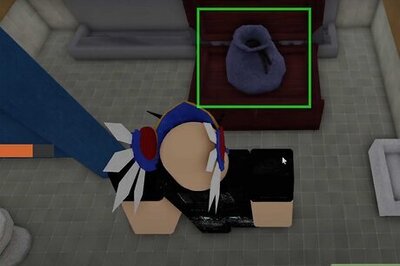
views
Dengue, a mosquito-borne fever, has spread across most parts of the country this year with nearly 50 deaths reported from a single state, Telangana. The other southern Indian states like Andhra Pradesh, Karnataka and Tamil Nadu are reeling under this monsoon disease. In fact, this fever is not limited to the south only. East Indian states like West Bengal, Bihar and Jharkhand have also been seriously infected with the disease.
What is Dengue?
According to the World Health Organisation, dengue is a fast emerging pandemic-prone viral disease in many parts of the world. Dengue flourishes in urban poor areas, suburbs and the countryside but also affects more affluent neighbourhoods in tropical and subtropical countries.
How is dengue transmitted?
Aedes aegypti mosquito is the main transmitter viruses that cause dengue. The viruses are passed on to human bodies through the bites of an infective female Aedes mosquito. WHO explains that the dengue virus (DEN) comprises four distinct serotypes (DEN-1, DEN-2, DEN-3 and DEN-4) which belong to the genus Flavivirus of the family Flaviviridae.
Symptoms
The Centers for Disease Control and Prevention describes that dengue can often be confused with other illnesses that cause fever, aches and pains, or a rash. The main symptom of dengue is fever, which is often accompanied with nausea, vomiting, rash, aches and pains (eye pain, typically behind the eyes, muscle, joint, or bone pain).
Treatment
So far, there is no specific medication to treat dengue. Rest is an integral way to cure the disease. It is also very important to stay hydrated during the fever, so drinking plenty of fluids such as water or drinks with added electrolytes is important.
Dengue prevention tips
Now, since it’s evident that there is no treatment or vaccine available to combat dengue, the most important point is to avoid acquiring the disease altogether. So here are 5 tips which will definitely help you to protect your family from dengue.
• Wear long-sleeved shirts and full leg covered pants to cover your arms and legs from mosquito bites
• Use mosquito repellant ointments and machines. The peak mosquito biting periods are early morning and evening (before dark) so keeping the mosquito-repellent machine is important at these times. Do not use an insect repellent ointment on infants under two months of age.
• Water sources should be covered and stagnant water must be removed. Stagnant water in household items like birdbaths, bowls, flower vases and other utensils that contain water should be removed from time to time. Such water can become a major dengue mosquito zone.
• Keep windows closed during early morning and during dusk. Dengue biting mosquitoes are in action during these hours. You can also consider getting a net fixed in your doors and windows to restrict the entry of mosquitoes but enable ventilation.
• Add kerosene oil to stagnant waters like water coolers. Kerosene oil has the ability to spread and create a thin film on water surfaces. This works as a barrier for respiration and the larvae or the eggs laid by the mosquitoes get killed due to suffocation.

















Comments
0 comment